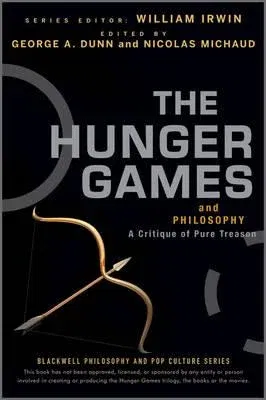A philosophical exploration of Suzanne Collins's New York Times
bestselling series, just in time for the release of The Hunger Games
movie
Katniss Everdeen is "the girl who was on fire," but she is also the girl
who made us think, dream, question authority, and rebel. The
post-apocalyptic world of Panem's twelve districts is a divided society
on the brink of war and struggling to survive, while the Capitol lives
in the lap of luxury and pure contentment. At every turn in the Hunger
Games trilogy, Katniss, Peeta, Gale, and their many allies wrestle with
harrowing choices and ethical dilemmas that push them to the brink. Is
it okay for Katniss to break the law to ensure her family's survival? Do
ordinary moral rules apply in the Arena? Can the world of The Hunger
Games shine a light into the dark corners of our world? Why do we often
enjoy watching others suffer? How can we distinguish between what's Real
and Not Real? This book draws on some of history's most engaging
philosophical thinkers to take you deeper into the story and its themes,
such as sacrifice, altruism, moral choice, and gender.
- Gives you new insights into the Hunger Games series and its key
characters, plot lines, and ideas
- Examines important themes such as the state of nature, war, celebrity,
authenticity, and social class
- Applies the perspective of some of world's greatest minds, such as
Charles Darwin, Thomas Hobbes, Friedrich Nietzsche, Plato, and
Immanuel Kant to the Hunger Games trilogy
- Covers all three books in the Hunger Games trilogy
An essential companion for Hunger Games fans, this book will take you
deeper into the dystopic world of Panem and into the minds and
motivations of those who occupy it.

